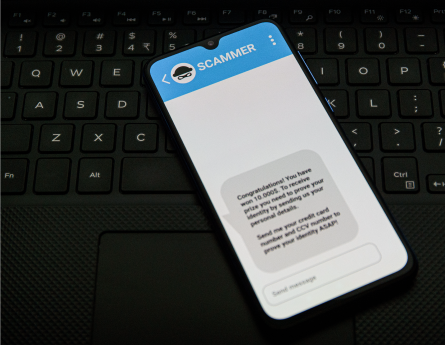
Romance scams are an unfortunately common problem, with victims losing large sums of money to fraudsters who they believe are a possible love interest. These scams often target vulnerable people and can have devastating financial and emotional consequences. It is important to be able to recognize the signs of a romance scammer to protect yourself.
Key Takeaways
- Understand the evolving tactics of scammers, including AI-driven technology like voice cloning and deepfakes, to discern genuine interactions from fraudulent ones.
- Identify red flags such as early declarations of love, requests for money, and suspicious profiles.
- Verify information, refrain from sharing personal details or sending money to strangers, and exercise caution with unknown links.
- Empower yourself to avoid romance scams by raising awareness, educating yourself about scam tactics, and trusting your instincts.
 Romance scams involve fraudsters posing as romantic partners and asking their victims for money, goods, or services. These scams are typically carried out through social media or dating sites and take advantage of the victim’s trust to gain access to their personal data and finances. The financial impact of these scams can be devastating, with victims losing thousands of dollars in some cases. According to 2022 FTC reports, romance scams resulted in $1.3 billion in losses, with the median reported loss being over $4,000.
Romance scams involve fraudsters posing as romantic partners and asking their victims for money, goods, or services. These scams are typically carried out through social media or dating sites and take advantage of the victim’s trust to gain access to their personal data and finances. The financial impact of these scams can be devastating, with victims losing thousands of dollars in some cases. According to 2022 FTC reports, romance scams resulted in $1.3 billion in losses, with the median reported loss being over $4,000.
Types of Romance Scams
There are several different types of romance scams that fraudsters use to target potential victims.
Sweetheart Scam
As one of the most common scams, fraudsters may contact you via social media or dating sites and attempt to develop a “relationship” with you and gain your trust. They will then begin to ask you for money or goods, often claiming to be in need of help.
Inheritance Scam
Scammers pretend to have a relative or friend who has recently passed away and offer to share their inheritance with you as their new love interest but need your help with the fee to access the money.
Dating Site Scam
After connecting on a dating site, the scammer may share links to their social media sites so you can learn more about them and connect further. However, these links may contain malware, which can allow the scammer to access your personal data.
AI Technology
As technology evolves, so do the tactics of scammers. With the increase in accessibility and the advanced capabilities of AI technology, a new layer of sophistication has been added to these types of scams, enabling fraudsters to craft highly realistic profiles, messages, and multimedia communications through deepfake videos and voice cloning. Understanding AI's role in these scams is crucial, as it significantly blurs the line between genuine and fraudulent interactions, making it challenging to identify a scam.
Voice Cloning
AI-driven voice cloning tools can replicate a person's voice with just a few seconds of sample audio. A fraudster could use this technology to mimic the voice of a supposed love interest, gaining your trust while concocting an urgent situation in which they need your financial support.
Deepfakes
This technology uses AI to create or alter video and can be used to fabricate video calls, messages, or other media that mimic real people, including celebrities or personal acquaintances, to manipulate victims into believing they're interacting with someone they trust.
AI-Generated Profiles
Using AI, scammers can create highly believable social media profiles, complete with extensive backstories, interests, and networks of fake friends. These profiles can engage victims with a level of consistency and depth that was previously impossible, making the scam more convincing.
The integration of AI into romance scams requires a heightened level of caution. For more information about AI scam, read Civista’s blog “Navigating AI Scams: Artificial Intelligence, Real Threats”.
Red Flags
To protect yourself from becoming a victim of a romance scam, it is important to be able to recognize the red flags of a potential fraudster. These include:
- Early professions of love
- Requests for money or gift cards
- Vague or sketchy background information
- Inconsistent stories
- Avoiding meetups or video chats
- Suspicious dating profiles with few or outdated images
If someone is pressuring you to send money or gifts before getting to know them better, it is likely a scam.
Ways to Protect Yourself
In addition to recognizing the signs of a potential scammer, there are several steps that can be taken to protect yourself from becoming a victim.
- Take your time getting to know someone before sending any money or gifts.
- Ask plenty of questions and verify any information provided by the other person.
- Never give out personal information, such as your banking details or passwords.
- Never send money to someone you don’t know well.
- Be cautious of clicking on links you're sent from data sites or profiles within their platforms.
Romance scams are an unfortunately common problem, but with the right knowledge and precautions, you can protect yourself from becoming a victim. Be aware of the different types of romance scams and their potential financial impact and look out for the signs of a potential scammer. If something doesn’t feel right, trust your instincts – it is better to be safe than sorry.
 Skip Navigation
Skip Navigation







